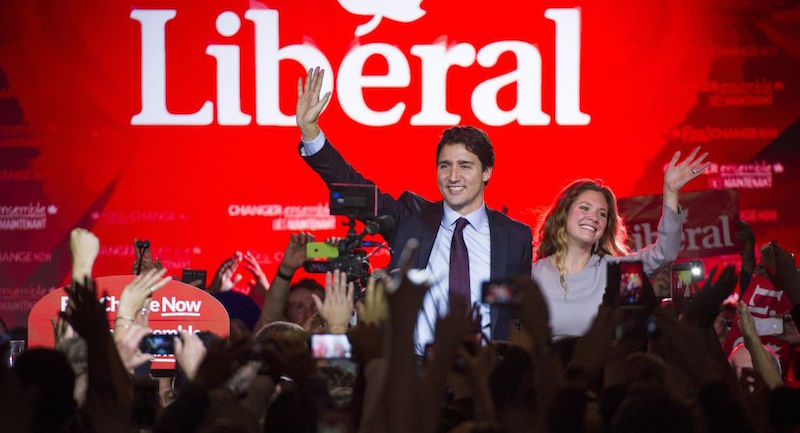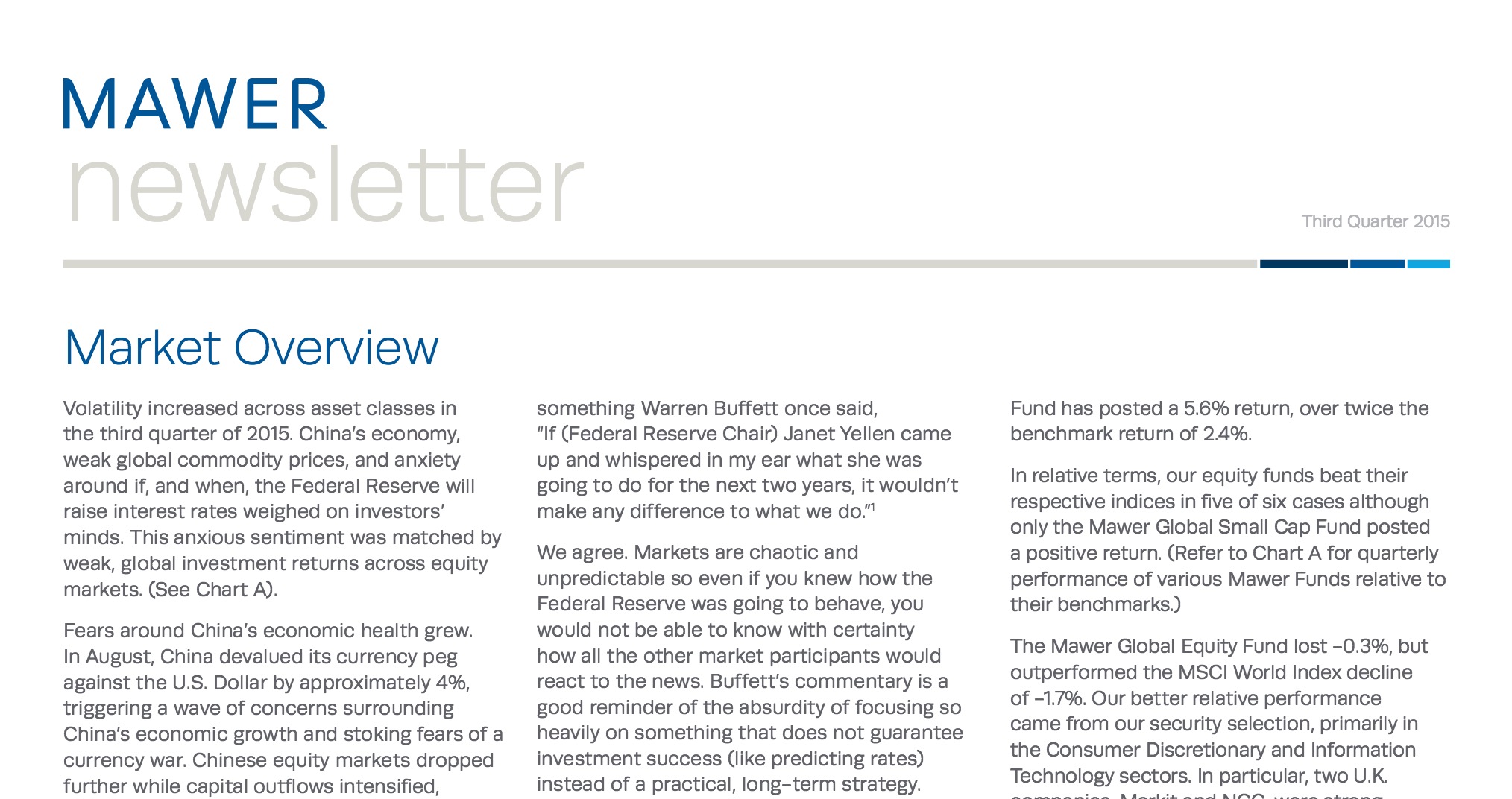Voices From The Real World - The 8 Biggest Questions On Investors' Minds
Via ConvergEx's Nicholas Colas,
When we get a chance to leave the bubble of the New York financial world, we grab on and hold tight. Today we spoke on a panel in Atlanta for SunTrust Investment Services where we got to hear the real world opinions of scores of advisors and, by extension, their clients.
Top of mind issues included “When is the Fed going to increase interest rates”, “what does the election next year mean for stocks”, “where are oil prices going”, “what’s the outlook for equities over the next decade” and “what could go wrong right now”.
The upshot of the discussions was clear: the bull case for U.S. stocks seems clearest but no one thinks there is any easy money to be made from current levels. Our message was to embrace the bearish case, but use upcoming volatility as a buying opportunity for the next bull market. This one, we think, is on its last, faltering legs and the hyenas are circling. Other panelists were more optimistic, so read on for the complete story.
The best part of my job happens outside the office and away from New York. Gotham, for all its charm, is the world’s largest echo chamber when it comes to perspectives on financial markets. Don’t get me wrong – I was born and raised in Manhattan in the 1960s and 1970s, so I appreciate that the financial industry has done a lot for the city. But if you want to hear new perspectives and feed your thought process, you need to get out of Dodge. (A saying, by the way, which originated with TV show Gunsmoke, not in the real “Wild West”).
Today I spoke on a panel hosted by SunTrust Investment Services in Atlanta for its advisors and investment staff. In the room: a hundred or so advisors. On the panel: Jennifer Capouya (Moderator), Deputy CIO at SunTrust, Keith Lerner, Chief Market Strategist at SunTrust, Phil Orlando, the Chief Equity Market Strategist at Federated Investors, and yours truly. I have omitted the group’s extensive list of credentials, but suffice it to say they all have CFAs (except me) and assorted other certifications like CMT and CFP (also, except me). How do you learn if you don’t hang out with people who know more than you?
The folks at SunTrust gave me approval to summarize the discussion as well as the in-depth survey of their advisors they used to structure the conversation. Thanks to them for allowing me to share that information. Any errors in today’s note are, of course, the property of the author and not SunTrust. What follows are summaries of the questions posed during the panel, the answers, and what the SunTrust advisor community had to say on the topic.
Question #1: The current bull market in the S&P 500 is already among the longest of all time. When do you think it will end? Right now, would you consider yourself bullish, bearish, or mixed about stocks generally? If you are a bull – what’s the catalyst to move stocks higher?
The Panel: Bulls outnumber bears 2:1. Yes, I was the “1”… The bull case came down to valuation, continued low interest rates, high corporate profit margins, and further U.S. economic growth. The bear case anchored on weak growth prospects for U.S. corporate earnings and the reliance on very low long-term interest rates to support stocks at current levels.
The Survey: Only 15% of SunTrust advisor respondents thought the bull market for U.S. stocks was at an end. The modal observation (31%) thought the bull would expire in 2017, with the second most popular choice (25%) in 2016. The most popular response to the bull-bear question was “Bull” at 51%, then “Neutral” at 33% and finally “Bear” at 16%.
Question #2: When do you expect the Fed to raise rates and how do you think the stock market will react to the first rate hike in what is now almost a decade?
The Panel: Opinion was pretty evenly split here. One panelist felt December or March was the most likely timing. Another pointed to later in 2016, based on current prices in the Fed Funds Futures market. All agreed that there was a lot of uncertainty on the point.
The audience: One of the more interesting questions during the Q&A period related not to when the Fed might increase rates, but what it does during the next recession (especially) if the Fed has not normalized policy by that time. One panelist answered that his firm’s baseline economic forecast did not call for a recession until 2018, leaving the Fed enough time raise rates before they might need to cut them.
Question #3: 2016 will be the fourth year of the current Presidential cycle – we’re heading into an election year and the rhetoric is heating up. How does the upcoming election impact your equity market outlook?
The Panel: Everyone acknowledged that this year has dramatically underperformed the typical 18% return for the S&P 500 for the third year of a Presidential cycle (since 1929). Given the run from the March 2009 lows, however, and the recent volatility in Energy markets and the Chinese economy, the consensus seemed to be that other issues rightly dominated the market conversation this year. One panelist noted the historical fact that it is rare for one party to dominate the White House for more than 8 years and posited that this favored a Republican win in 2016.
Heard after the panel: I had the chance to speak with one advisor after the formal conversation. He explained to me that one challenge he faces is convincing clients who don’t like the current administration to stay invested in stocks.
Question #4: Regionally, where do you see the greatest opportunity over the next 12 months?
The Panel: Everyone liked U.S. stocks relative to other global equity markets. Opinions were more split on Europe and one panelist gave Japan sporting odds to outperform next year. Of the emerging markets, only India got a nod.
The Survey: SunTrust investment professionals surveyed also like U.S. stocks (45% said it had the greatest opportunity), followed by Europe (35%). Emerging markets (18%) trounced Japan (2%).
Question #5: What sectors do you expect to perform best over the next 12 months?
The Panel: Energy stocks seemed to have the broadest support from the dais, given their dramatic underperformance over the past year and hopes that oil may have bottomed. That said, one panelist noted the flood of oil that will come to the market from Iran in the coming months. Other sectors that found favor with the panel: Technology, Financials, and Consumer Discretionary.
The Survey: Health care led the pack (25% of respondents), followed by Energy (22%) and Financial and Information Technology (17%).
Question #6: What are your thoughts on oil prices over the next year or two and how is that impacting your investment recommendations?
The Panel: In many ways this was the hardest question of the day. From a technical perspective, oil’s late August lows just below $40/barrel are worth watching. Also worth noting: the strong correlation between U.S. stocks and oil prices and what a drop for the commodity might do to confidence in domestic stocks.
The Survey: Only 5% of respondents thought oil would drop to below $40/barrel in the next year, consistent with the overall positive tenor of their other responses. Just over 90% (91% to be precise) thought oil would trade between $40-$70 barrel and 4% thought it would go over $70/barrel.
Question #7: The average return on the U.S. stock market since the 1920s is about 11%. Do you expect returns like that going forward? What is your long-term stock market return outlook?
The Panel: One panelist felt that if the political discourse changed to be more growth-and-investment friendly, stocks could compound at average returns close to the historical average. Other observations were more conservative, in the range of 5-7%. No one thought stocks would be lower than today in a decade’s time.
The Survey: Respondents thought 5-10% average annual returns for U.S. stocks are the most likely outcome (78%). Some 19% believe +10% average returns are the right base case, and 3% worried it was less than 5%.
Question #8: What’s the biggest risk to markets in the short term?
The Panel: Everyone worried about a Fed misstep – either raising rates too soon or too late for the market’s comfort. Also on the list: geopolitical shocks, especially those that might suddenly increase the price of oil.
The Survey: Respondents agreed that a Fed misstep was a distinct possibility, but many felt that “Other factor” – a catchall for an unpredictable event – was also a viable cause of sudden death for the current bull market.
Our takeaway from the panel discussion and follow-on conversation was that “Real investors” – the kinds of people and business that SunTrust professionals work with – are simultaneously nervous and hopeful, confident yet resigned. Yes, their basic belief in equities as an investment class is sound and supported by the last five years of good performance. At the same time, they understand the nuances of the bear case extremely well and are prepared for a long slog of lower returns. Their biggest professional challenge is keeping their clients invested rather than going to cash at the first sight of volatility. The contrarian in me wants to believe this caution is the right foundation for a much longer bull run. But the realist says that the SunTrust team, informed by their daily interaction with thousands of clients, probably has it right.

Copyright © Nicholas Colas, Convergex Group















